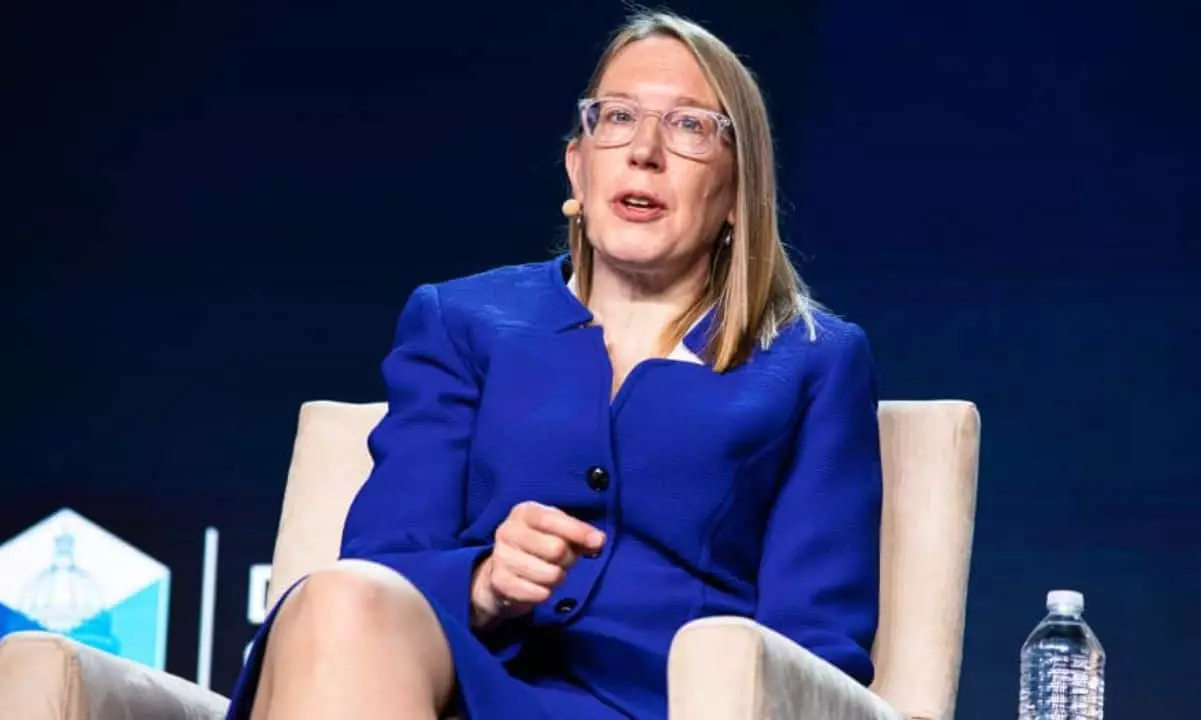The ever-evolving landscape of cryptocurrency regulations has been a focal point of discussion over the past few years. As a significant player in this domain, Hester Peirce, a Commissioner at the U.S. Securities and Exchange Commission (SEC), has emerged as a critical voice advocating for a more transparent and supportive regulatory framework. In her latest discourse, Peirce has outlined her strategic vision for crypto regulation in light of the anticipated Trump administration, aiming to address the barriers that hinder the growth of digital assets in the United States.
In a recent conversation on Fox Business, Peirce highlighted three pressing issues that she believes are obstacles to cryptocurrency’s advancement. The most controversial among these issues is known as “Operation Chokepoint 2.0,” a term used by industry critics to describe perceived governmental efforts to limit the crypto sector’s access to banking and financial resources. This initiative has garnered significant backlash, with claims that federal agencies are systematically restricting the operational capabilities of crypto firms.
Peirce has called for an urgent re-evaluation of these measures, stating that the first order of business is to dismantle such restrictive approaches. She argues that preventing cryptocurrencies from accessing essential services—like custody solutions—acts against the very spirit of innovation that the crypto industry seeks to embody. By allowing crypto firms to access the needed financial infrastructure, Peirce posits that the industry can flourish and integrate more effectively within the larger financial ecosystem.
Another priority for Peirce is the need to establish clear definitions around which digital assets are classified as securities. This clarification is crucial to eliminate existing uncertainty that weighs heavily on cryptocurrency companies. Without a well-defined understanding of what constitutes a security, many digital assets are left in a regulatory grey area, hindering innovation and compliance.
Peirce emphasizes that it is imperative for both regulators and the crypto industry to engage in open dialogues. Collaborations could lead to valuable insights regarding how current regulations apply to digital assets and where amendments might be necessary. She expressed optimism that through such cooperative approaches, rapid progress could be achieved. The necessity for such collaboration arises from the cautious stance taken by regulatory bodies like the Federal Reserve, FDIC, and the Office of the Comptroller of the Currency (OCC), which have issued guidance warning financial institutions about the risks associated with crypto transactions.
The political framework surrounding crypto has also entered a phase of increasing scrutiny. Representative French Hill has publicly pledged to scrutinize Operation Chokepoint 2.0, illustrating growing bipartisan concern over the implications of politicized debanking tactics targeting the crypto industry. Hill’s initiative, titled “Make Community Banking Great Again,” contends that financial institutions should not close customer accounts without substantial reasoning, which he sees as an overreach of government authority.
The controversy around Operation Chokepoint has sparked broader discussions about the future of oversight in the crypto space. Many industry leaders, including Cardano’s founder Charles Hoskinson, have warned about the potential global ramifications of these restrictive regulations. Hoskinson describes the operation as a coordinated effort to undermine and discriminate against crypto businesses worldwide through harassment, fines, and audits, raising critical alarms about the chilling effects on innovation and investment in the sector.
Commissioner Hester Peirce’s articulations about the need for a more supportive and transparent regulatory framework for cryptocurrencies could not be more timely. Her call to dismantle restrictive practices, clarify regulatory boundaries, and foster collaboration between regulators and the crypto industry holds the promise of a more robust and inclusive digital financial landscape. As the dialogue continues to develop, it remains imperative for stakeholders to unite, advocating for a regulatory environment that nurtures growth while maintaining necessary oversight. Only through mutual understanding and cooperation will the full potential of the crypto industry be realized.

